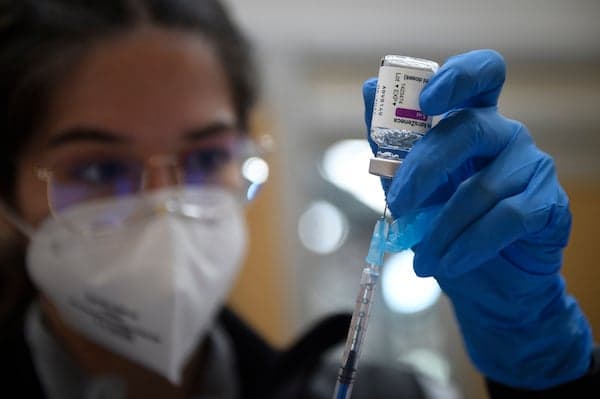No link between death of Spanish teacher and AstraZeneca vaccine, autopsy reveals

The autopsy on the 43-year-old Marbella teacher, Pilar González Bres, who died from a brain haemorrhage, two weeks after receiving the first dose of the AstraZeneca vaccine, reveals that there was no link between the jab and her death.
The Andalusian regional healthcare chief Jesús Aguirre, said on Friday that an initial autopsy report revealed that there was “no causal relationship” between González being vaccinated and her subsequent brain hemorrhage. He added that the report was “conclusive”.
READ ALSO: Spain probes death of Marbella teacher after AstraZeneca jab
The SUR newspaper reported that sources revealed there were no signs of blood clots in the teacher's body and that she was "at a high risk for suffering a stroke". It is thought that she may have had an aneurysm, which is likely to have caused the brain haemorrhage.
The autopsy was performed at the Costa del Sol Hospital in Marbella.
Spanish health officials were also investigating two other cases of thrombosis after people had received the AstraZeneca vaccine, however, the results have not yet been reported.
The announcement of the death and other blood clot cases by Spain's AEMPS medicines agency, came two days after the government suspended the use of the AstraZeneca vaccine on Monday, March 15th, as a precautionary measure.
Germany, France, and Italy also announced similar moves linked to fears that the vaccine could generate serious blood clots which can cause swellings, heart attacks and haemorrhages.
On Thursday, March 18th, Spain announced that it would resume AstraZeneca vaccinations next Wednesday, after learning the results from the investigation into the possible link between AstraZeneca and blood clots, by the European Medicines Agency (EMA).
“The decision was taken unanimously as the benefits outweighed the risks, in line with the findings from the European Medicines Agency,” Health Minister Carolina Darias told a news briefing after a meeting with Spain's regional health chiefs.
Comments
See Also
The Andalusian regional healthcare chief Jesús Aguirre, said on Friday that an initial autopsy report revealed that there was “no causal relationship” between González being vaccinated and her subsequent brain hemorrhage. He added that the report was “conclusive”.
READ ALSO: Spain probes death of Marbella teacher after AstraZeneca jab
The SUR newspaper reported that sources revealed there were no signs of blood clots in the teacher's body and that she was "at a high risk for suffering a stroke". It is thought that she may have had an aneurysm, which is likely to have caused the brain haemorrhage.
The autopsy was performed at the Costa del Sol Hospital in Marbella.
Spanish health officials were also investigating two other cases of thrombosis after people had received the AstraZeneca vaccine, however, the results have not yet been reported.
The announcement of the death and other blood clot cases by Spain's AEMPS medicines agency, came two days after the government suspended the use of the AstraZeneca vaccine on Monday, March 15th, as a precautionary measure.
Germany, France, and Italy also announced similar moves linked to fears that the vaccine could generate serious blood clots which can cause swellings, heart attacks and haemorrhages.
On Thursday, March 18th, Spain announced that it would resume AstraZeneca vaccinations next Wednesday, after learning the results from the investigation into the possible link between AstraZeneca and blood clots, by the European Medicines Agency (EMA).
“The decision was taken unanimously as the benefits outweighed the risks, in line with the findings from the European Medicines Agency,” Health Minister Carolina Darias told a news briefing after a meeting with Spain's regional health chiefs.
Join the conversation in our comments section below. Share your own views and experience and if you have a question or suggestion for our journalists then email us at [email protected].
Please keep comments civil, constructive and on topic – and make sure to read our terms of use before getting involved.
Please log in here to leave a comment.